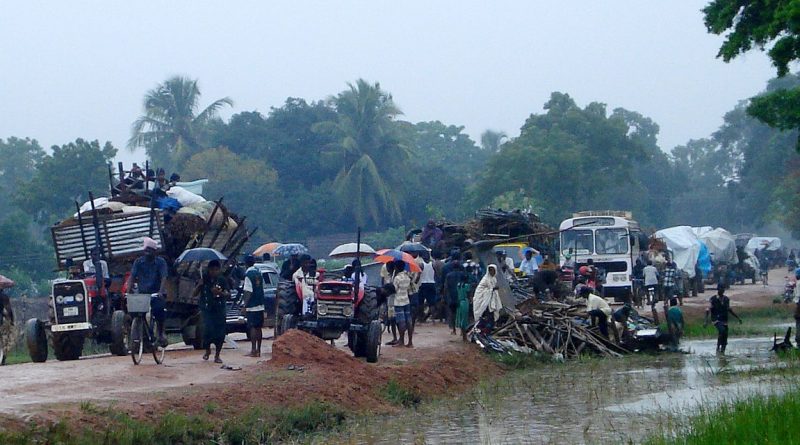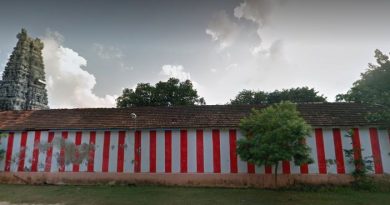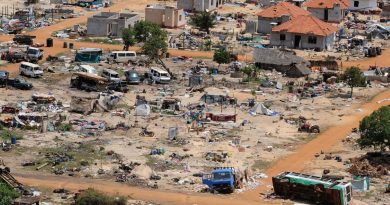US trick of coercion: Carrot to entice Gotabhaya, stick to strike Shavendra.
US trick of coercion: Carrot to entice Gotabhaya, stick to strike Shavendra
US Acting Assistant Secretary at the Bureau of South and Central Asia of the US State Department, Alice G. Wells, was turning a blind eye to the ongoing structural and heritage genocide in the traditional homeland of Eezham Tamils in the North-East during her testimony on human rights in South Asia to the US House Foreign Affairs Committee on Tuesday. The US was “encouraged by the SL government’s progress on the operationalization of an Office of Missing Persons and the establishment of an Office of Reparations,” she said. Alice G Wells was accompanied by Robert Destro, the assistant secretary at the Bureau of Democracy, Human Rights and Labor, who was also citing “Sri Lanka” as the country in the South Asian region where the US have had some “notable successes”. The only strong complaint they had was the recent promotion of pro-Chinese SL Army Commander Lt Gen Shavendra Silva.
Sri Lanka is an “important maritime power and Indo-Pacific partner,” Ms Wells observed, and she was looking forward to work with “whichever candidate emerges victorious from next month’s election.”
This implies that the US was already engaging with the ‘US citizen’ and the wartime chief of the SL military, Gotabhaya Rajapaksa, who was the man giving instructions to Shavendra de Silva during the genocidal onslaught on Vanni.
Although her statement admitted that the progress in implementing transitional justice was slow or stalled, she was praising genocidal Sri Lanka as “Asia’s oldest democracy” and a “leading actor” in South Asia on a variety of “development indicators”.
The USA was “encouraged by the continued release of land in the north and east back to its original owners,” she observed during her testimony.
Robert Destro came with the stick: “We have made it clear to the Sri Lankan President and other senior officials that Silva’s promotion to Army Commander will significantly curtail bilateral cooperation with the Sri Lankan Army under U.S. law, while accountability for Silva and other perpetrators could lead to easing restrictions and greater military engagement.”
The SL military should curtail defence links with China’s PLA was the message coming from the Trump Administration to the next president, who would be the Commander-in-Chief of the SL military.
In the meantime, Colombo-based US diplomats who met Tamil civil activists and politicians in Jaffna last week were saying that Tamils should place their hope in a roadmap of small incremental steps. They were not prepared to accept the fact that the very existence of Tamils as a nation in the island is being destroyed in an accelerated manner through heritage and structural genocide as well as the ‘mega development’ schemes of the unitary state, the activists in Jaffna said.
The situation in Kashmir received much focus during their testimonies of the US diplomats on South Asia.
Indian government points to many justifications such as externally supported terrorist movements in Kashmir, Wells said while responding to a question. She said it was “the trade-off that is being made between the national security and individual liberty was that we are not comfortable with.”
In other words, the Trump Administration was comfortable with the revocation of the special status of Jammu and Kashmir by India in August – an action carried out by Modi’s government which is USA’s Major Strategic Partner in the Indo-Pacific.
The Sri Lanka part of the statement by Alice G Wells before the House Foreign Affairs Subcommittee On Asia and the Pacific follows in full:
The peaceful resolution of Sri Lanka’s constitutional crisis last December demonstrated the resiliency of its democratic institutions, with the government’s protection of minorities following ISIS-inspired terrorist attacks last Easter demonstrating its commitment to human rights principles. When Sri Lankans go to the polls on November 16 to elect their next president, we expect this contest will be free, fair, and non-violent — and exhibit the qualities befitting Asia’s oldest democracy. In order to support further progress, we continue to work closely with Sri Lanka, including in support of human rights, reconciliation, and transitional justice. In addition to diplomatic engagement, we work with Sri Lanka to strengthen its democratic institutions and support civil society organizations. We are also building Sri Lankan capacity to improve public financial management, fight corruption, and promote accountability.
Following the April 21st ISIS-inspired terrorist attacks in Sri Lanka, the government was initially slow to counter threats of reprisals against Muslims and those perceived to be Muslims. However, by May, authorities had moved to protect minorities, including refugees and asylum seekers, and prevented large outbreaks of communal reprisal violence.
Sri Lanka has also led the region on a variety of development indicators that support the lives of its citizens. It continues to make progress on transitional justice, albeit slowly. We welcomed Sri Lanka’s renewed commitment this year in Geneva to accountability, justice and reconciliation, and we will encourage sustained follow through on implementation. Transitional justice is critical to realizing the Sri Lankan people’s desire for long-term peace and stability. In this regard, we are encouraged by the government’s progress on the operationalization of an Office of Missing Persons and the establishment of an Office of Reparations. We also are encouraged by the continued release of land in the north and east back to its original owners.
However, progress on other commitments has been slow or stalled, including on constitutional reform, replacing the Prevention of Terrorism Act, establishing a truth and reconciliation commission, and creating a credible judicial mechanism to ensure accountability for past crimes. We have publicly voiced our disappointment in the appointment of Lieutenant General Shavendra Silva as Army Commander given the allegations of gross human rights violations and war crimes against him – as documented by the United Nations and other organizations – are serious and credible. Sri Lanka is an important maritime power and Indo-Pacific partner, and we have made clear that this promotion forces us to curtail mutually beneficial bilateral security cooperation under U.S. law.
We look forward to continuing our work with Sri Lanka on these and other issues and will actively press our human rights agenda with whichever candidate emerges victorious from next month’s election.
The Sri Lanka part of the statement by Robert Destro follows:
The United States and Sri Lanka share common goals as fellow democracies working to promote and protect human rights and fundamental freedoms. Like the United States, Sri Lanka is home to many diverse communities that reflect many different age groups, ethnicities, cultures, races, religions, and orientations. It is imperative that we appreciate these differences as strengths, not as an opportunity for division, and that our partnership upholds human rights and civil liberties for all communities. The United States is committed to helping Sri Lanka achieve reconciliation for all ethnic and religious communities in the wake of its 30-year civil war that ended in 2009. We welcomed Sri Lanka’s renewed commitment this year in Geneva to accountability, justice, and reconciliation and will continue to press for sustained and measurable implementation, which is critical to realizing the Sri Lankan people’s desire for long-term peace and stability.
We are encouraged by the Government of Sri Lanka’s progress on the operationalization of an Office of Missing Persons, the establishment of an Office of Reparations, and the release of a majority of military-occupied land in the north and east back to its original owners. We continue to urge the government to maintain that momentum.
Unfortunately, progress on constitutional reform, repealing and replacing the Prevention of Terrorism Act (PTA), and establishing a truth and reconciliation commission has stalled, while no effort has been made to establish a credible judicial mechanism to address accountability for atrocities.
We have also expressed concern with officials at the highest levels about violence against members of religious minorities, such as members of the Christian and Muslim communities, particularly in the aftermath of the April 21 attacks. Our engagement with Sri Lanka has emphasized the wisdom of upholding human rights when countering terrorism as the government’s imposition of a nearly four month State of Emergency raised concerns about government abuse of civil liberties and fears from minority communities of a return to civil war- era detentions and abuses. We have urged government officials to take steps to prevent violence, publicly condemn acts of harassment and violence against members of religious minority communities, and to hold those responsible for such attacks accountable.
A strong civil society and independent media serve to protect all citizens, and provide them a voice through access to information, advocacy, and oversight of the government. However, the spread of disinformation on social media has fueled ethnic and religious tensions on this island nation. Strengthening the independence and the integrity of Sri Lanka’s media sector is key to supporting the Government of Sri Lanka’s efforts to solidify the country’s recent advances in media freedom and democratic governance, both critical to the protection of human rights.
Human rights and rule of law concerns are also at the forefront of our partnerships with security forces. We thoroughly vet all security sector personnel who receive U.S. foreign assistance resources, including training, in accordance with U.S. law. Human rights training will continue to be an important component of our bilateral military engagement.
Nevertheless, we are deeply concerned by the appointment of Lieutenant General Shavendra Silva as Army Commander and the negative message the appointment sends for Sri Lanka’s purported commitment to post-war accountability. The allegations of gross human rights violations against him, documented by the United Nations and other organizations, are serious and credible. This appointment undermines Sri Lanka’s international reputation and its commitments to promote justice and accountability, especially at a time when the need for reconciliation and social unity remains paramount. We have made it clear to the Sri Lankan President and other senior officials that Silva’s promotion to Army Commander will significantly curtail bilateral cooperation with the Sri Lankan Army under U.S. law, while accountability for Silva and other perpetrators could lead to easing restrictions and greater military engagement.
Continued progress in Sri Lanka’s human rights record is vital to Sri Lanka’s long-term peace, prosperity, and stability. As Sri Lanka is heading towards presidential elections next month, we hope to see the next government increase its focus on human rights, improve fledgling reconciliation institutions, and implement all the mechanisms for transitional justice.
Source



